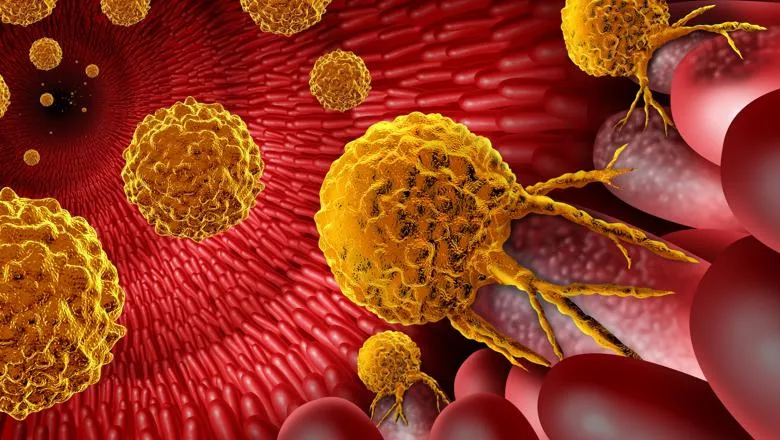We can play around with the kind of polymer used – there’s one used in solar cells which produces light in the near infra-red region - just beyond where our eyes can see, but where skin and blood are transparent. Meaning that with special cameras, we can look deep into the body and find cancers not easily detected. It’s hugely rewarding to see this technology, which over the last 20 years has been in development both inside and outside of King’s, starting to emerge as genuinely important diagnostic and treatment tools against a range of diseases. We’re excited working with world-leading researchers to develop these next generation materials, continuing the fight against cancer.
Professor Mark Green
09 February 2023
King's part of £1.85 million project to transform bowel cancer treatment and diagnosis
The project will deliver new tools to help detect and operate on colorectal cancel.

New technology that could revolutionise the diagnosis and treatment of bowel cancer will be developed by Physicists from King’s College London, alongside lead partner, the University of Hull, and Imperial College London researchers.
Funded by the Engineering and Physical Sciences Research Council (EPSRC), the major £1.85 million project will deliver new tools to help detect and operate on colorectal cancer – cancer which starts in the colon or rectum, which is the fourth most common cancer and second biggest cause of cancer deaths in the UK.
Currently over 100 new patients are diagnosed with colorectal cancer per day in the UK. Progress on survival rates has been slow, and the disease burden has increased with the country’s ageing population. The team of researchers plus industrial partners and clinicians aims to reverse this by delivering more sophisticated methods of screening, diagnosis, treatment. The technology aims to improve the accuracy of precision surgery carried out on colorectal cancer, enabling surgeons to better target cancerous cells to remove. This could lead to reduced side effects and fewer treatment visits for patients, and reduce costs for the NHS.
The project, ‘Translational nanoconstructs for targeted tissue accumulation and guided surgery in cancer’, will see researchers develop a multimodal nanoparticle system to target rapidly growing and invasive colorectal cancer cells.
Professor Mark Green, from the Department of Physics, explained:
“What we’ve done is take the light emitting components from OLED TVs, which are polymers or plastics which luminesce when used with electricity in the TV and repurposed them to emit light in biologic systems – including human bodies.
“They work so well in TVs because they’re so bright and last for thousands of hours, which is a vast improve on the current light emitting technology used to detect cancer or other disease, which lasts only a fraction of that time, leading to incomplete or incorrect diagnoses.
“The polymers will be curled up into protein sized balls – nanoparticles - and made soluble in water, an essential step to make them biological compatible. We will then add targeting to drag the polymer nanoparticles to the cancer site and make them glow when attached or sucked up by the tumour.
“As they continue to emit light for long periods, surgeons will be able to take their time in removing cancerous tissue targeted by the particles.”
Once developed, the new technology has the potential to not only improve the precision of surgery, reducing recurrence of the disease, but also to enhance diagnosis and surveillance of colorectal cancer.
It could also revolutionise the diagnosis and treatment of other cancers. Professor Green said:

